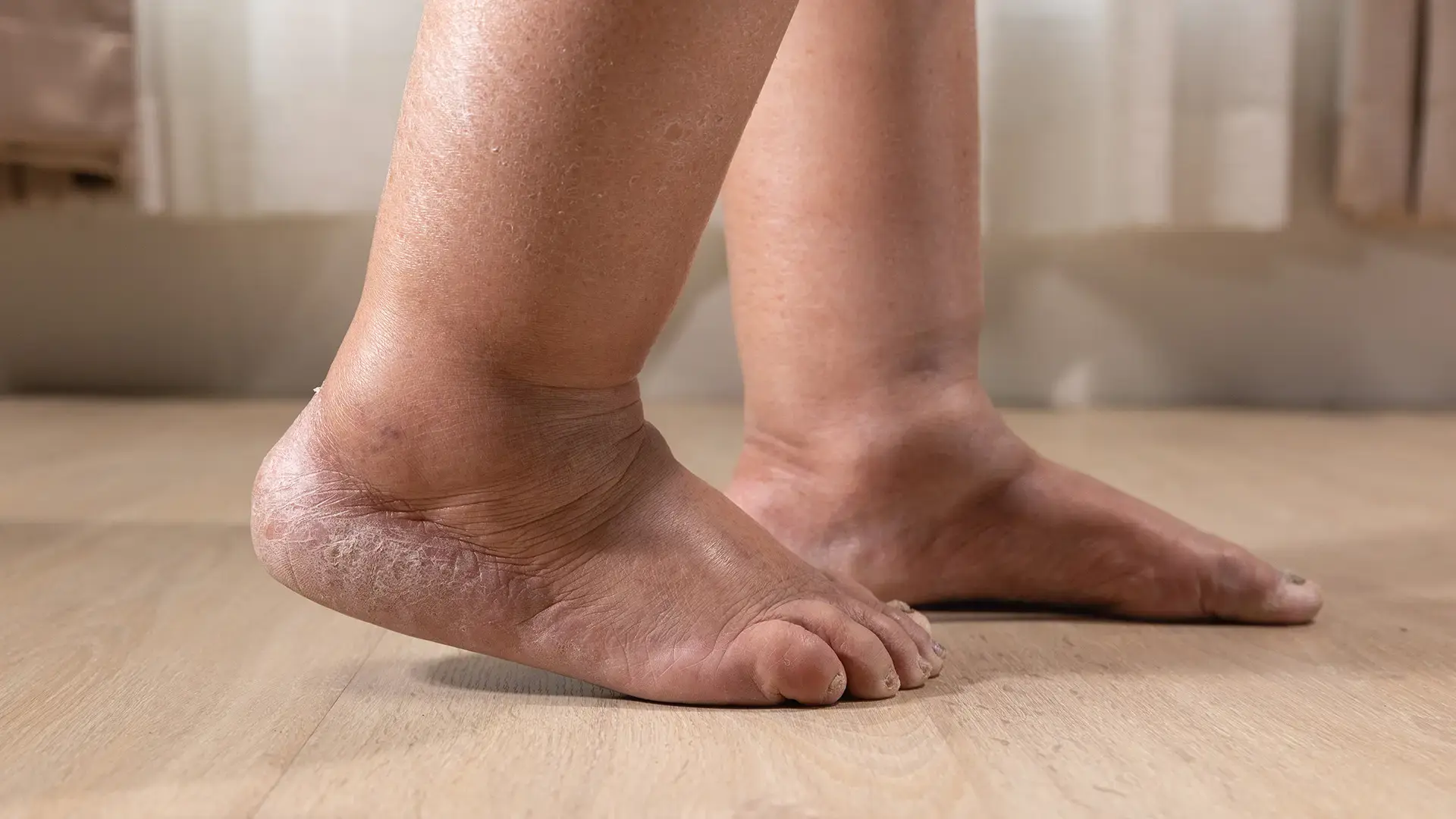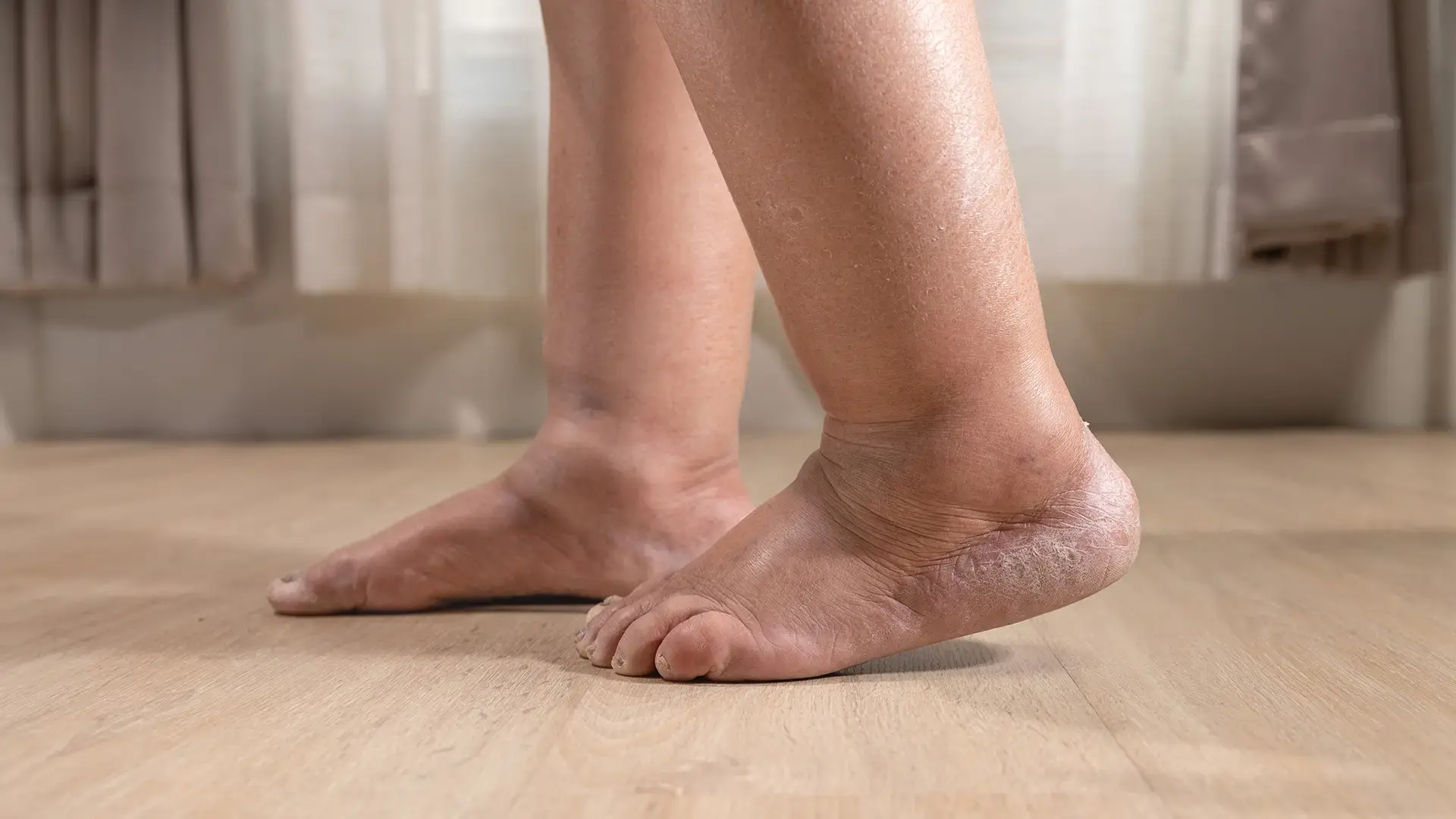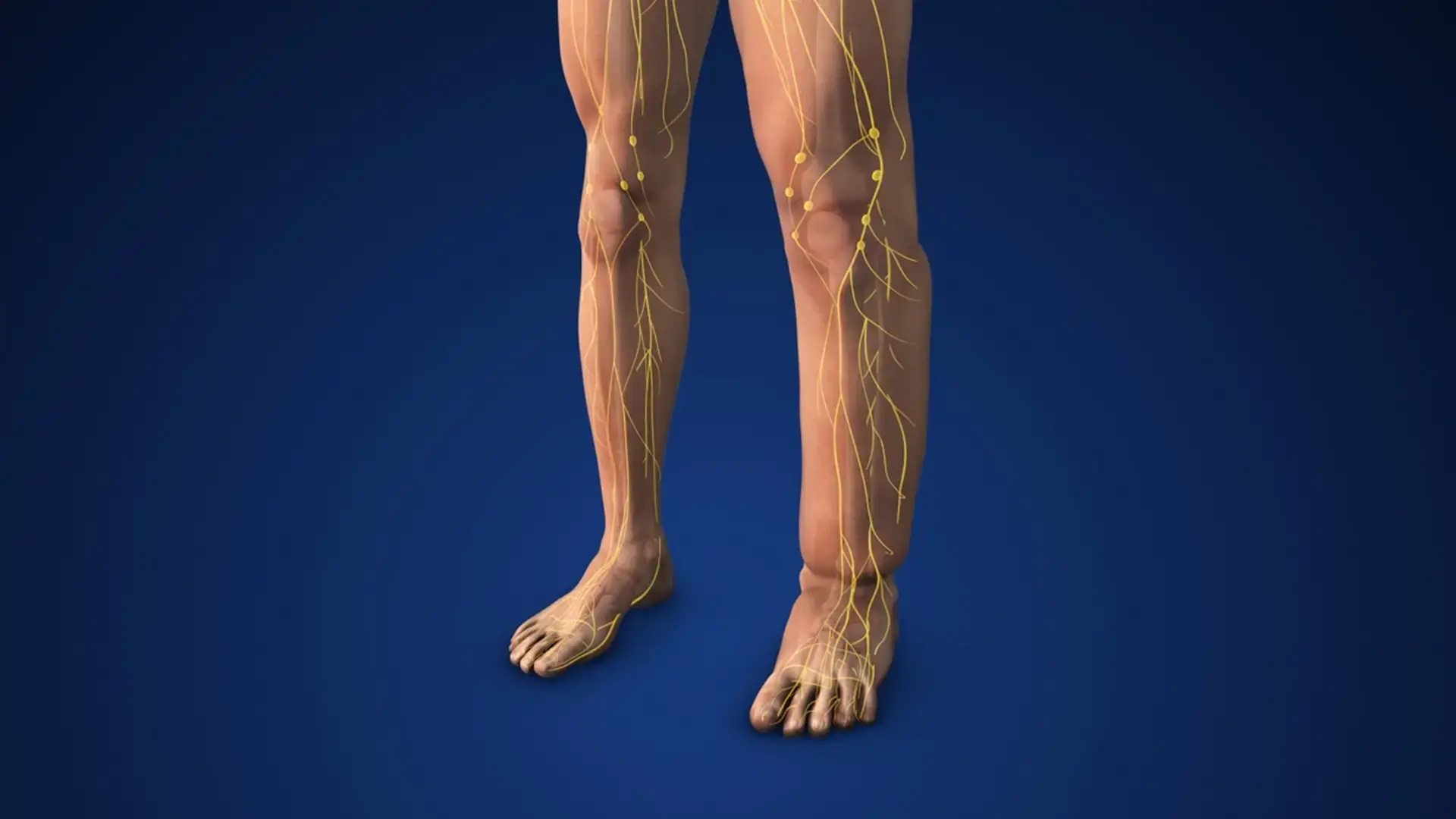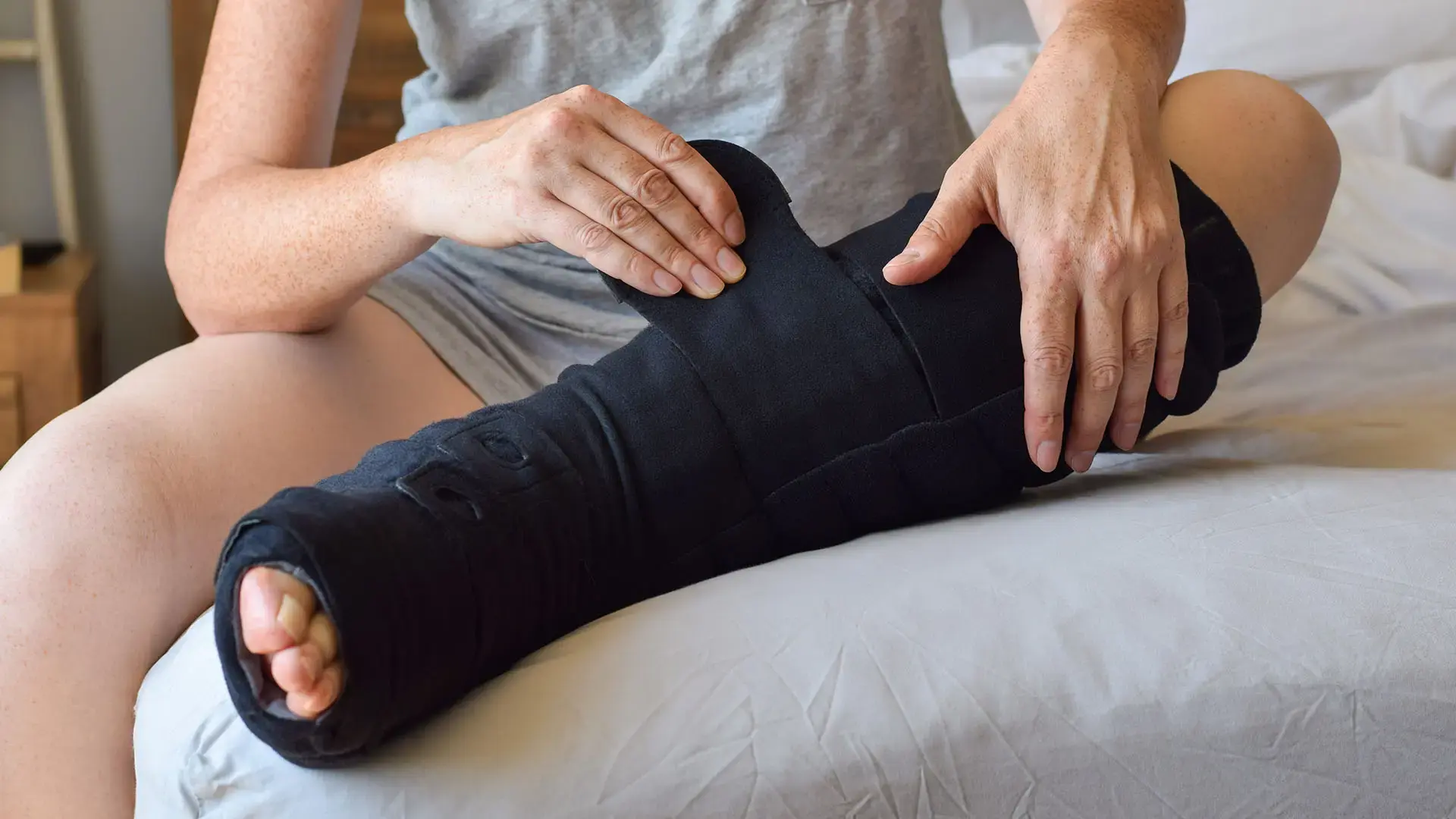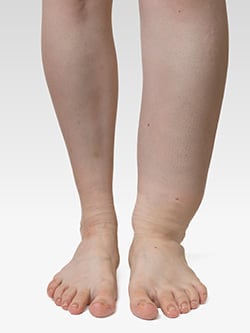Common Challenges for Lymphedema Patients - Plus Tips on How to Address Them
Living with Lymphedema is not easy. From discomfort and mobility issues to the emotional impact of fearing another flare-up or having negative body perceptions, around 250 million people worldwide struggle with this life-altering condition. Lymphedema requires ongoing management and daily care, including adapting daily routines and developing new habits to reduce symptoms. In this article, we will explore some of the most common challenges for lymphedema patients and general recommendations on overcoming challenges and taking back control of your quality of life.
Pain and Discomfort During Day-to-Day Activities
Lymphedema is a chronic condition that causes swelling in one or more limbs due to a malfunction in the lymphatic system. Day-to-day activities such as getting dressed, washing, and bathing can be particularly painful and uncomfortable for people with lymphedema. Difficulty sleeping is also a challenge for lymphedema patients, as regular massaging of the affected area is often necessary to prevent the condition from worsening. Fortunately, there are ways to address the day-to-day discomfort of living with lymphedema.
- Incorporate light exercises, such as walking or swimming, into your daily routine. This can improve circulation, reduce inflammation, and promote lymphatic drainage.
- Maintain a healthy weight. Excess weight can put additional strain on the lymphatic system, leading to worsened symptoms. Maintaining a healthy weight through a balanced diet and regular exercise can help to alleviate symptoms and improve overall health.
- Stay hydrated. Dehydration can lead to worsened swelling and inflammation.
- Practice good skin care. Proper skin care can help to reduce the risk of infection and improve overall skin health. This includes keeping the skin clean, moisturized, and protected from sun damage.
- Avoid extreme temperatures. Extreme temperatures, including hot baths or saunas, can worsen swelling and inflammation.
- Seek support. Asking for help from friends, family, or a support group can alleviate feelings of isolation and improve overall mental health.
Skin Problems
The accumulation of lymphatic fluid in the affected limb can cause the skin to become thick, dry, and prone to cracking. Skin problems can range from mild irritation to severe infections, which can be serious for individuals with compromised immune systems. In addition, the use of compression garments and bandages can exacerbate skin problems by causing friction and pressure on the skin. If you have an active skin infection, seek medical attention immediately. To prevent infection and alleviate mild irritation, you can try the following: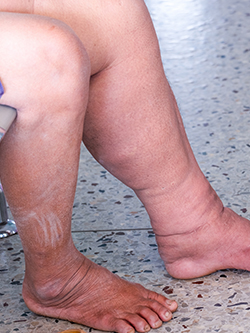
- Keep the skin clean and moisturized.
- Use mild, unscented soap and warm water during bathing to prevent irritation.
- Apply lotion or cream to keep the skin hydrated and prevent cracking.
- Avoid skin irritants, such as perfumes and chemicals.
- Wear loose-fitting clothing to help reduce friction and pressure on the skin.
Social and Emotional Distress
Patients with lymphedema often experience social and emotional distress that can be challenging to manage. The visible physical changes and limitations in mobility can lead to feelings of self-consciousness, anxiety, and depression – all of which can impact their relationships, career, hobbies, and overall quality of life. To combat feelings of social or emotional distress:
- Connect with a support group. Online or in-person, these groups can provide a safe and supportive environment for individuals to share their experiences, concerns, and strategies for managing the condition. Support groups can also help to reduce feelings of isolation and provide a sense of community.
- Seek the assistance of a mental health professional. Mental health professionals can provide support and guidance for managing the emotional challenges of living with lymphedema and help individuals develop coping skills to manage anxiety, depression, and other emotional issues.
- Focus on self-care and activities that promote relaxation and stress reduction. These can include meditation, yoga, or other forms of exercise. Engaging in activities that bring joy and a sense of accomplishment can also improve overall well-being and reduce stress.
Lack of Awareness About Qualified Lymphedema Specialists
Lymphedema symptoms can be similar to other conditions, such as deep vein thrombosis or cellulitis, making it difficult for some healthcare providers to recognize and diagnose lymphedema accurately. Additionally, lymphedema can be a chronic condition that requires ongoing management and treatment. Some healthcare providers may not be familiar with the latest research and best practices for lymphedema management. Lymphedema specialists are healthcare professionals with specialized training in the diagnosis and management of lymphedema. These providers stay up-to-date with the latest treatments and procedures for addressing lymphedema symptoms. To find experienced board-certified Lymphedema doctors in your area:
- Ask your primary care physician or healthcare provider for a referral.
- Check with your insurance provider to find a specialist in your area.
- Visit the Institute for Advanced Reconstruction to find a lymphedema specialist near you.
The Institute for Advanced Reconstruction has some of the most experienced surgeons in the world performing advanced procedures to treat Lymphedema, like Lymphovenous Bypass and nerve decompression. This can provide patients access to advanced treatment options not widely available elsewhere, such as:
Lymphaticovenular anastomosis (LVA): a minimally invasive procedure that involves connecting lymph vessels from the affected area to veins to redirect lymphatic fluid. The procedure is typically done on arms and legs, but it can also be performed on other body parts affected by Lymphedema or edema.
Lymph node transfer: a surgical procedure to move healthy lymph nodes from one body part to another. This type of treatment for lymphedema is often performed when cancer has affected some or all of the lymph nodes in an area and needs to be replaced with new ones. The process involves taking healthy lymph nodes from a donor site, such as the neck or groin, before transplanting them into an area that needs healthy lymph nodes, such as an armpit (axilla) after breast cancer surgery.
Managing Expensive Medical Costs
Living with lymphedema can be costly due to the need for regular therapies, follow-up visits, and medical supplies and equipment. Depending on the severity of the condition, some people may require more frequent treatments or more complex interventions, such as surgical treatments, increasing their out-of-pocket expenses related to their care. Although many insurance plans cover some of these services and treatments associated with Lymphedema management, specific interventions may be excluded or come with limits or co-insurance requirements that increase financial hardship on the patient. To help reduce the financial burden of living with lymphedema:
- Talk to your healthcare provider: Your healthcare provider may be able to provide guidance on managing your lymphedema in a cost-effective way. They may also be able to recommend specific products or treatment options that are covered by your insurance.
- Check your insurance coverage: It is important to understand what lymphedema-related treatments and products are covered by your insurance and if there are any limitations or exclusions.
- Shop around: If you need compression garments, pumps, or other lymphedema-related products, be sure to shop around and compare prices. Some online retailers may offer lower prices than local medical supply stores.
- Look for financial assistance programs: Several organizations offer financial assistance to patients with lymphedema. For example, the Lymphatic Education & Research Network (LE&RN) offers grants to help cover the cost of lymphedema-related treatments and supplies.
Dont Face Life with Lymphedema Alone
Living with Lymphedema can be tough, but you don't have to face it alone. With support and resources, patients can manage their symptoms and live confidently. Stay positive, informed, and advocate for yourself when seeking treatment with the help of our vein clinics.


